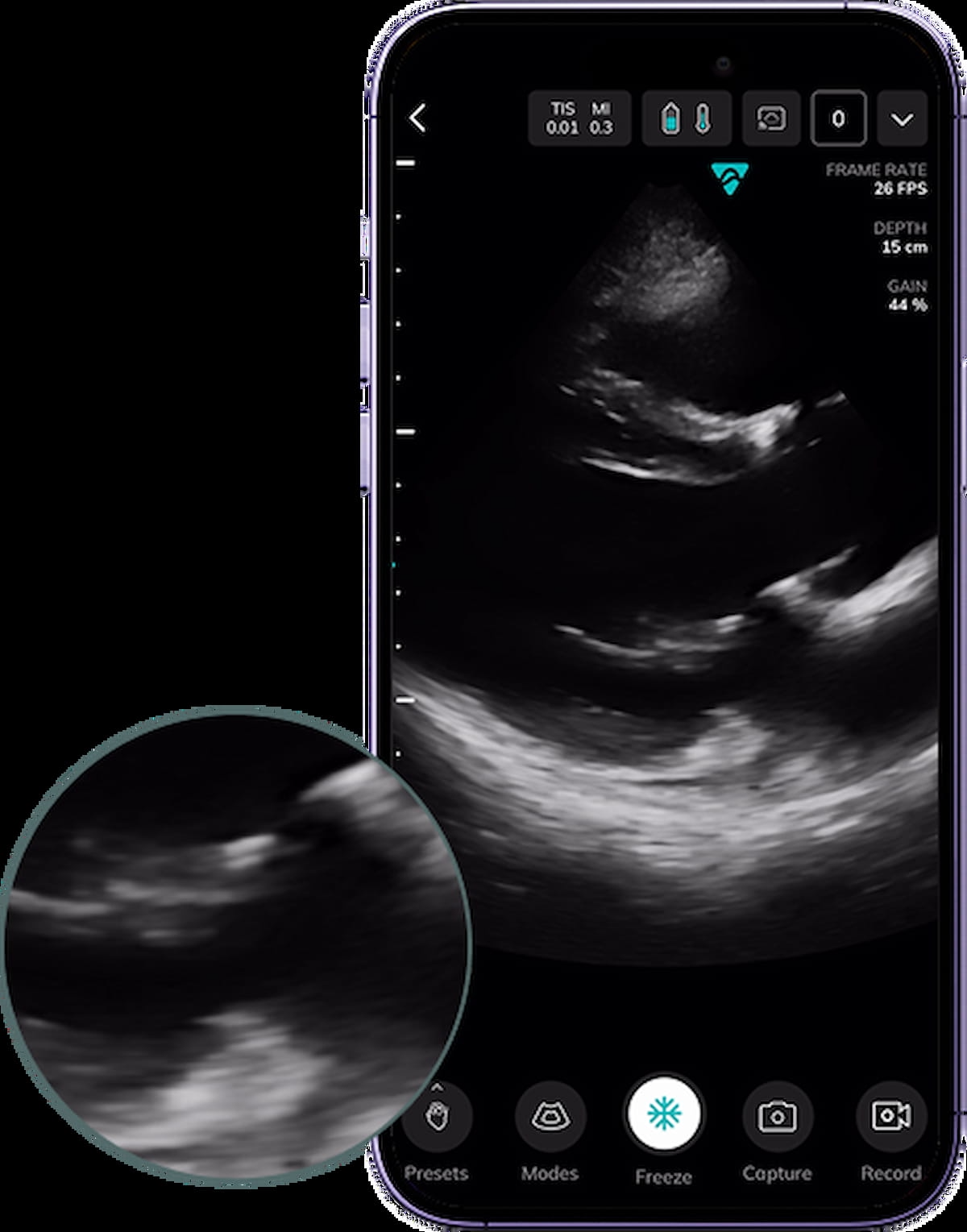Vave Health Unveils Handheld, Whole-Body Ultrasound Device
Emphasizing intuitive workflow and portability, the Universal Wireless Probe reportedly offers a cost-effective combination of phased and linear ultrasound imaging.
Offering the promise of enhanced point-of-care ultrasound (POCUS) imaging in an affordable, portable device, Vave Health has launched the Universal Wireless Probe.
The company said key benefits of the Universal Wireless Probe include:
• high-quality whole-body imaging through a combination of phased and linear imaging capabilities;
• a variety of presets to facilitate ease of use;
• PZT transducer technology; and
• no subscription fees.
In addition to a combination of phased and linear imaging capabilities with the newly launched Universal Wireless Probe ultrasound device, Vave Health said users of the device can also access the VaveCast feature, which enables screen sharing between clinicians. (Image courtesy of Vave Health.)

In addition to a swappable battery to reduce downtime with the Universal Wireless Probe, Vave Health noted that the VaveCast feature, which allows seamless screen sharing with multiple android and IOS devices, facilitates real-time collaboration between clinicians.
"A combination of wireless portability, lack of subscription and membership fees, lifetime software updates, full-body imaging, and rich educational support make the Vave solution the ideal platform for new learners and seasoned POCUS users alike," stated Renee Dversdal, M.D., the chief medical officer at Vave Health.
Newsletter
Stay at the forefront of radiology with the Diagnostic Imaging newsletter, delivering the latest news, clinical insights, and imaging advancements for today’s radiologists.
FDA Clears Point-Of-Care Ultrasound Platform and AI Software for Neuraxial Procedures
July 17th 2025The dual FDA clearances for the Accuro 3S point-of-care ultrasound device and the SpineNav-AI machine learning-based software may enhance precision and safety with ultrasound-guided neuraxial procedures.
The Reading Room: Racial and Ethnic Minorities, Cancer Screenings, and COVID-19
November 3rd 2020In this podcast episode, Dr. Shalom Kalnicki, from Montefiore and Albert Einstein College of Medicine, discusses the disparities minority patients face with cancer screenings and what can be done to increase access during the pandemic.
FDA Expands Approval of MRI-Guided Ultrasound Treatment for Patients with Parkinson’s Disease
July 9th 2025For patients with advanced Parkinson’s disease, the expanded FDA approval of the Exablate Neuro platform allows for the use of MRI-guided focused ultrasound in performing staged bilateral pallidothalamic tractotomy.